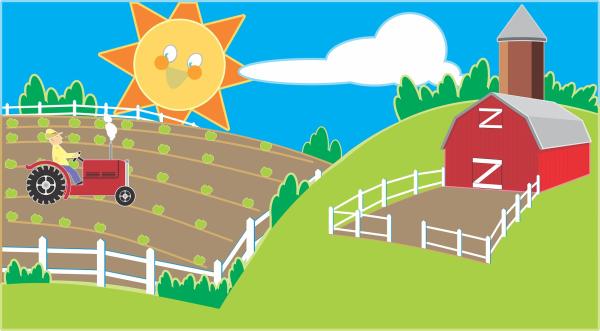Research going back many years has clearly documented that organic farming tends to require more land while producing less food than its conventional counterpart. However, the argument continues that this yield deficit could be mitigated if organic farmers could grow genetically engineered crops. As a bonus, these growers would have to use fewer pesticides in many cases, thereby reducing the environmental impact of agriculture—a shared goal among many organic farming proponents.
This is a pretty standard case for broadening the use of crop biotechnology. But what many readers may not know is that there are voices within the organic farming movement who recognize this, too. One such figure is Urs Niggli, president of the Institute of Agroecology and a widely recognized pioneer in organic farming. He has acknowledged several times in recent years that biotechnology isn't the boogeyman some of his colleagues have alleged. Responding to a question about sustainable agriculture, Niggli recently told German newspaper Frankfurter Allgemeine Zeitung that the world has to recognize the limitations of organic farming:
"We cannot daydream and be happy in the biobubble! If you switch completely to organic farming, productivity drops sharply. Then you would have to import a lot more food and thus export environmental impacts to other countries ... That would have catastrophic effects on biodiversity ... The combination of high productivity and high ecological sustainability is the way we have to go today. It takes more than organic."
How do you combine high productivity and sustainability? Incorporate gene-edited crops. This suggestion makes many activists break out in hives, but Niggli argued it's a perfectly reasonable proposal. Many of the crops grown and sold as "certified organic" products were produced through some form of mutation breeding. Read this detailed article if you want to learn more, but the long and short of it is this:
Mutagenesis involves exposing plants to ionizing radiation or, more rarely, chemicals to mutate their genes, then growing them for multiple generations to isolate desirable traits. Plants possessing these traits are bred for still more generations to develop uniformity and field tested to see how they perform in real-world settings. If these mutated crops do well, they are licensed and released to farmers.
Since gene-editing techniques like CRISPR-Cas9 work essentially the same way, though, with far more precision, it seems there's no reason to exclude gene-edited crops from organic agriculture. But logic rarely prevails in these discussions; all genetically engineered seeds are prohibited. Organic farmers can grow crops containing thousands of random mutations in their genomes, though plants bred through more precise methods are verboten. "How does that fit together?" Uggli asked rhetorically, because the restriction obviously doesn't make any sense.
There's nothing "inorganic" about GE crops.
Here's something else to think about. Genetically engineered crops are enhanced at the molecular level years before they're grown commercially. "Organic," meanwhile, describes the methods used to grow a crop commercially. What sense does it make, then, to exclude any plants because of their genetics? None whatsoever. And this leads us to a significant realization: the idea that conventional and organic farmers are ideological opponents in a pitched battle for the soul of agriculture is fiction. As AgDaily reported early last year:
"The rivalry isn’t representative of reality, however. There is too much functional crossover for the seeds of spite to be planted. For example, conventional growers have done more in recent years to adopt the cover-cropping practices long held by organic growers; while organic producers are doing more with no-till like their conventional producers have been. And it’s not uncommon to find a large-scale 'conventional' grower who has a sizable portion of land with an organic crop on it."
It seems to me that genetic engineering could become just one more "functional crossover." This has been prevented by a handful of activist groups that promote an "organic at all costs (OAACs)" perspective. Honest questions about the blurry boundaries between breeding methods and seed genetics are heresy to this faction. "OAACs exist where there is no cogent discussion, only ideology," AgDaily added. The Organic Consumers Association (OCA), a notorious anti-GMO outfit, may be the best example here; the activist group has even opposed selling mutagenized crops under the "organic" banner.
Conclusion
But OCA has a formidable opponent in a respected figure like Uggli, who seems to be shifting the discussion in a pro-technology direction. A younger generation of environmentalists, notably in the EU, sees little justification to remain staunchly anti-GMO. The old saying is that "science advances one funeral at a time." Perhaps the same is true of organic agriculture, too.




